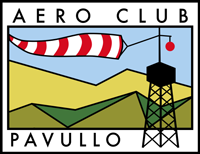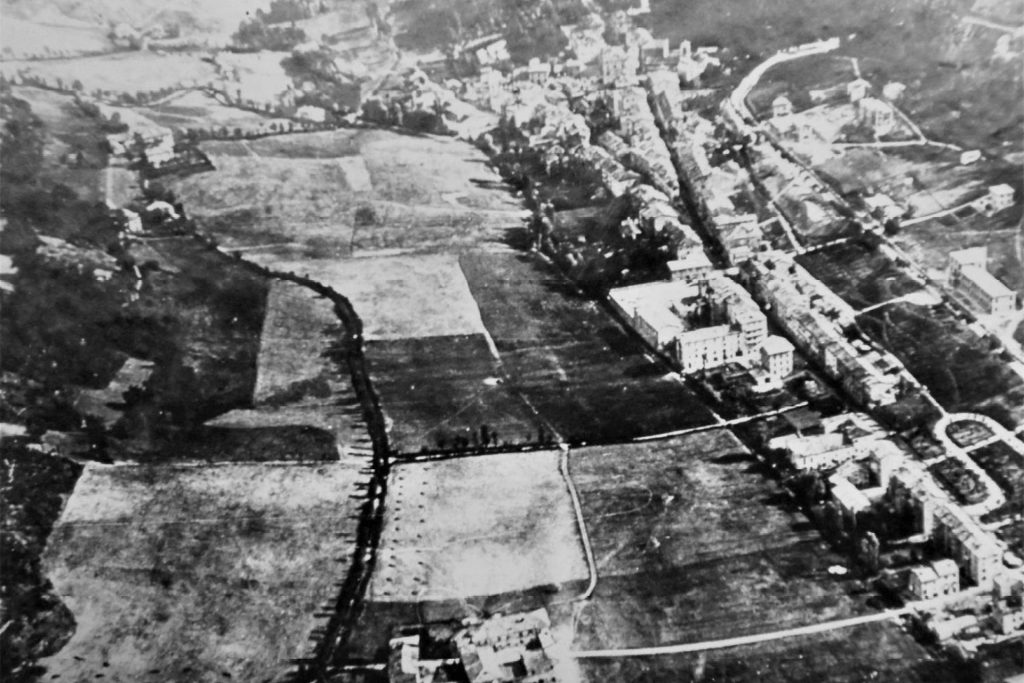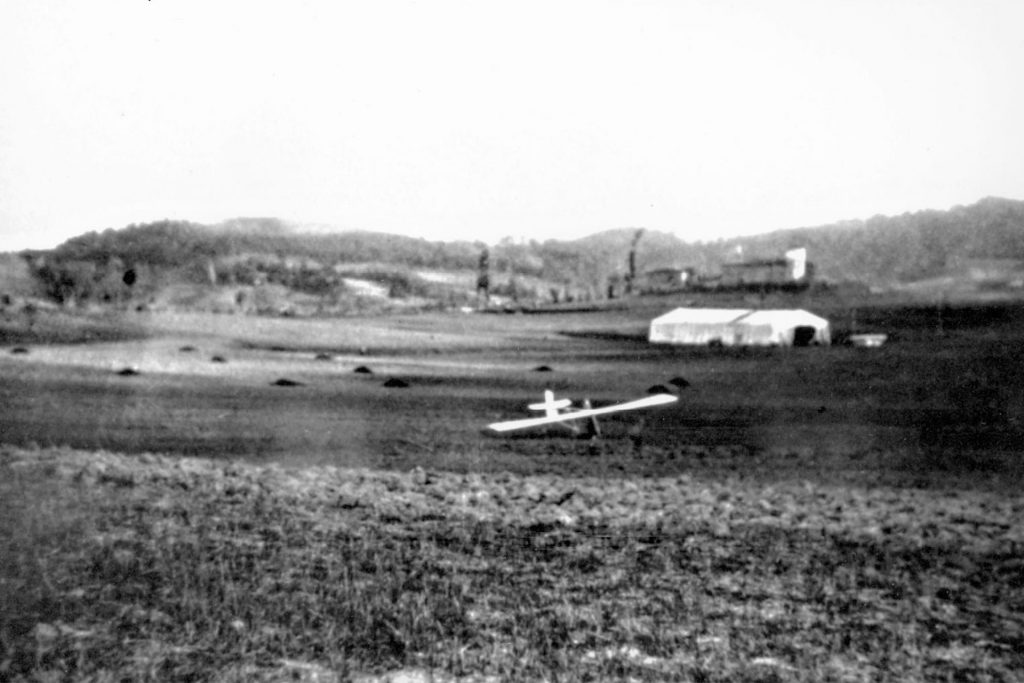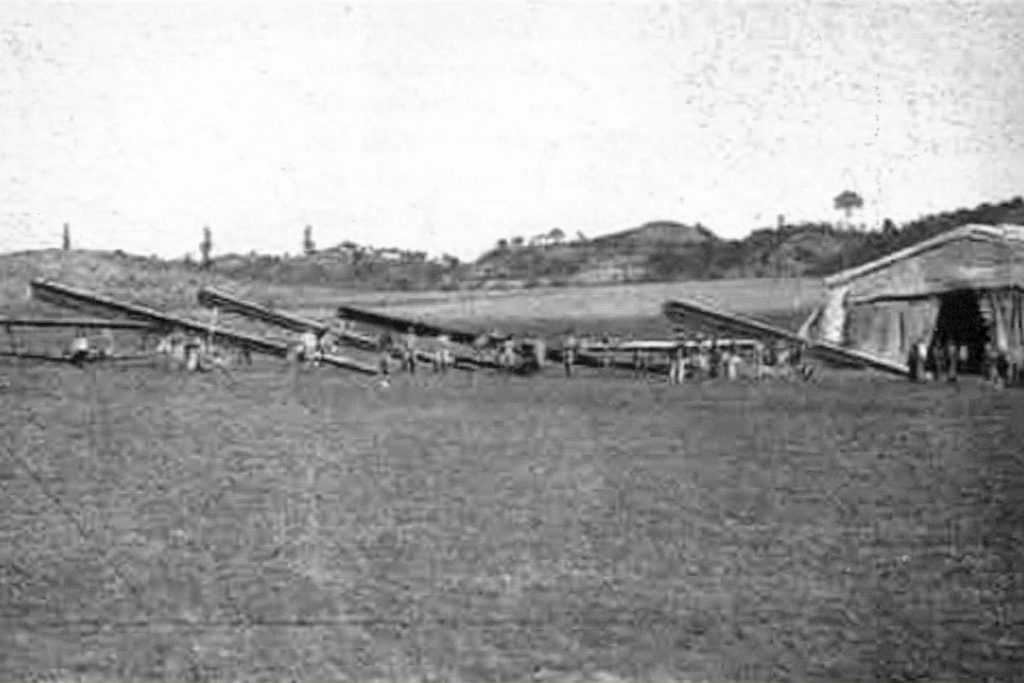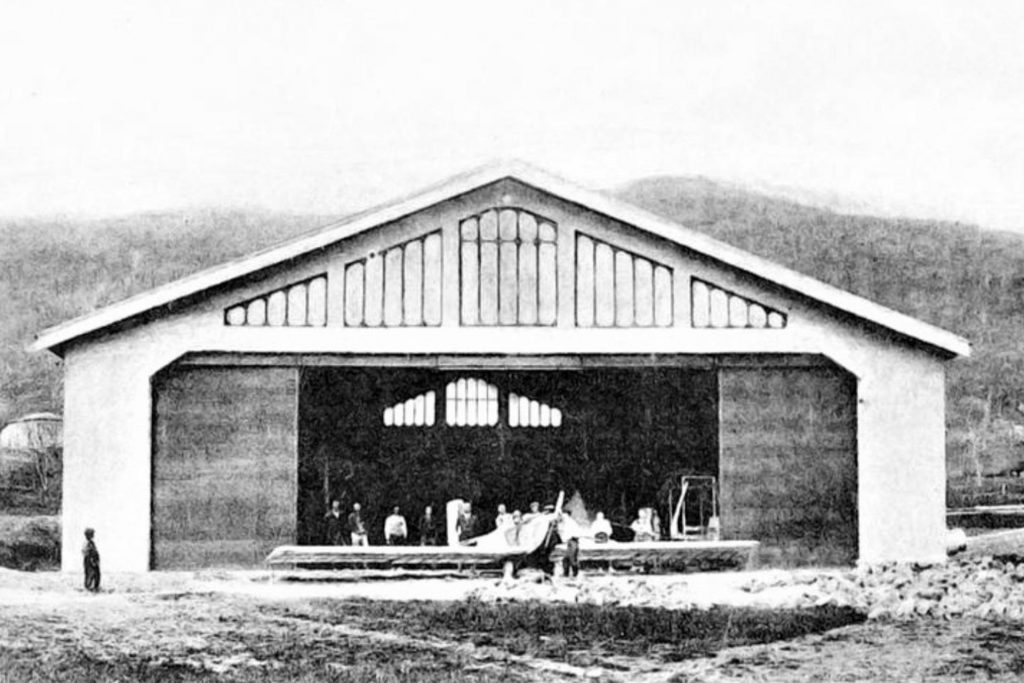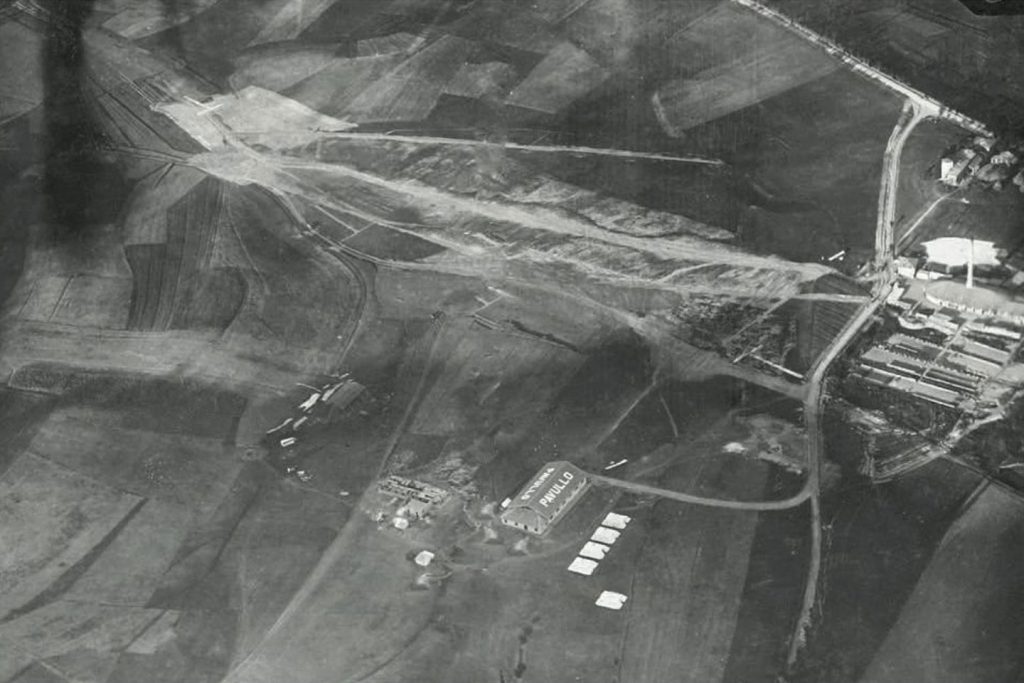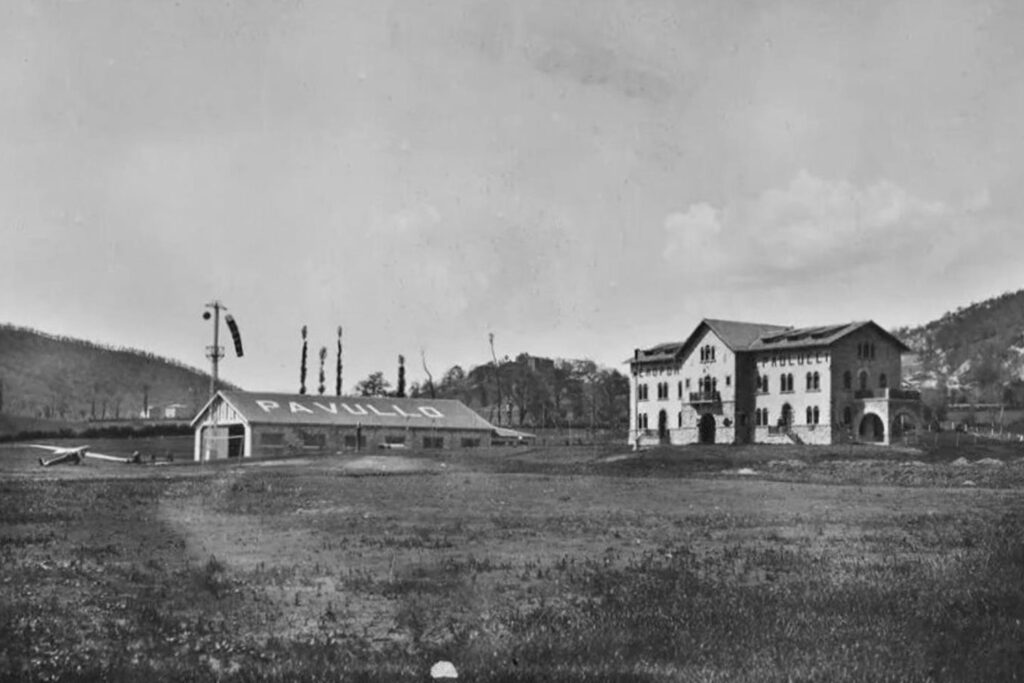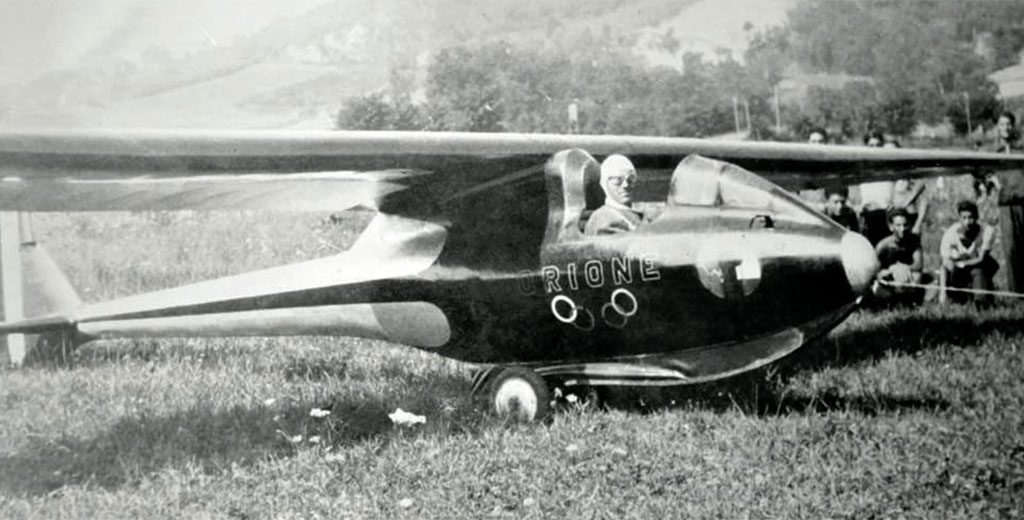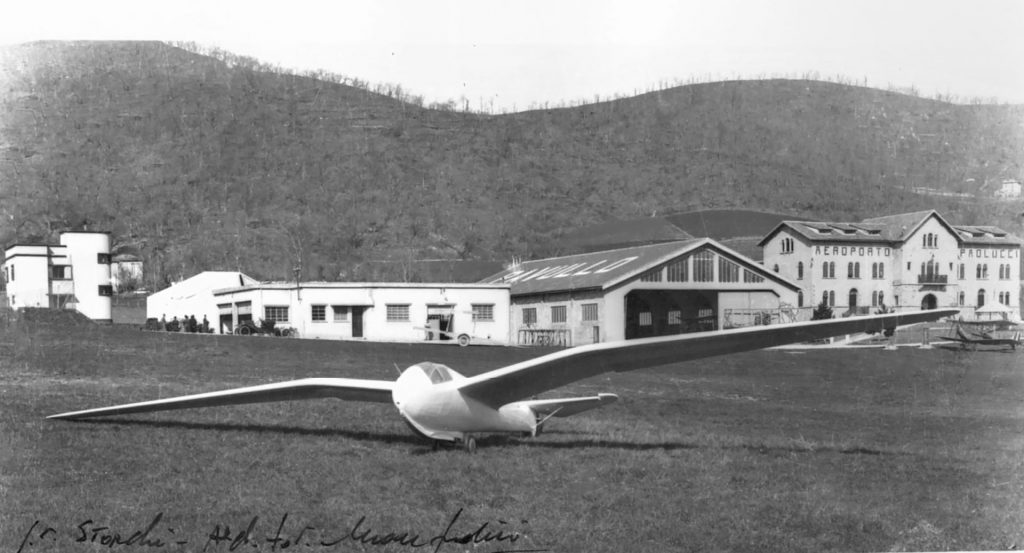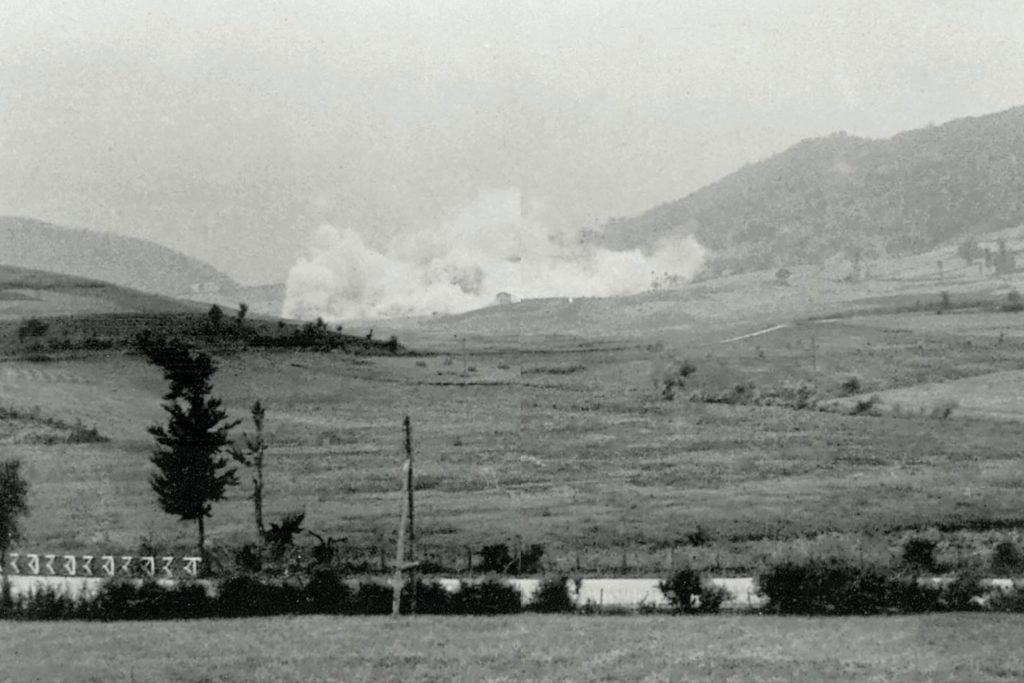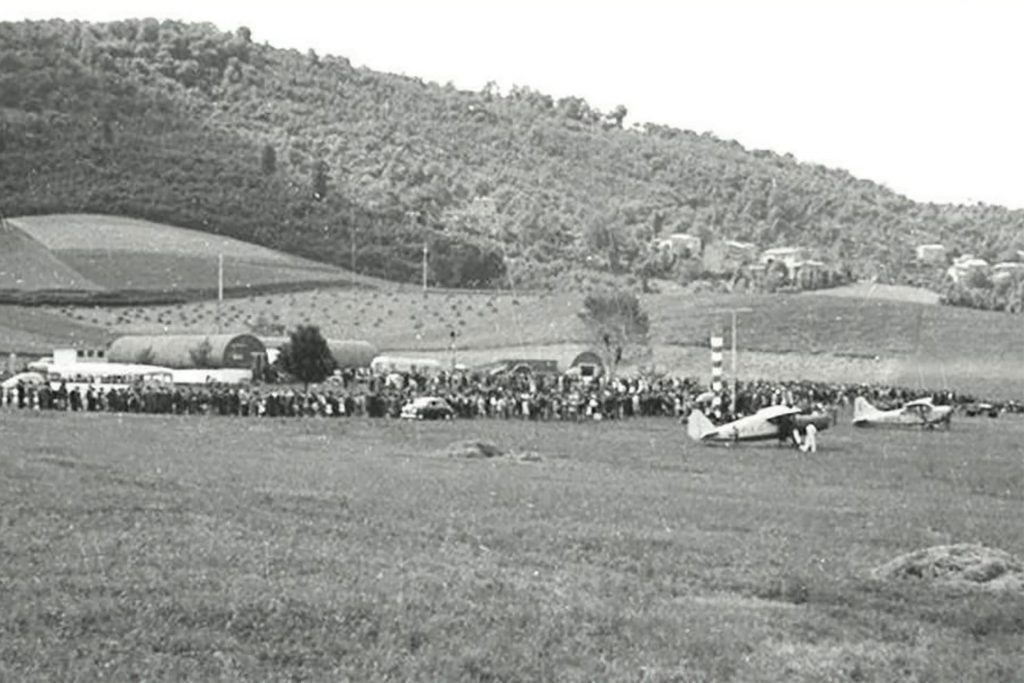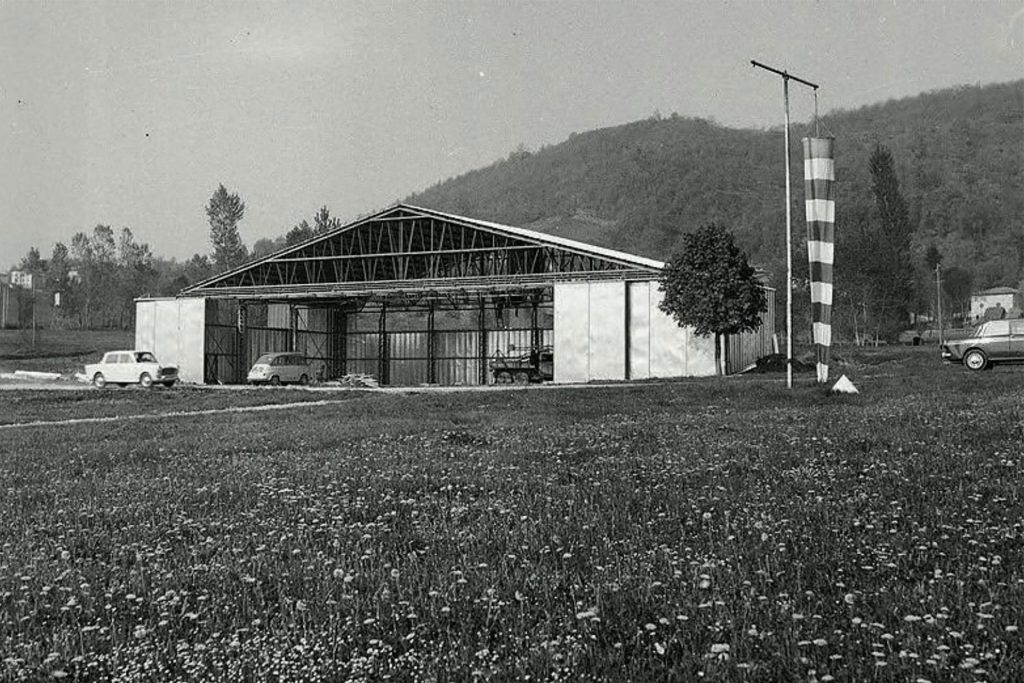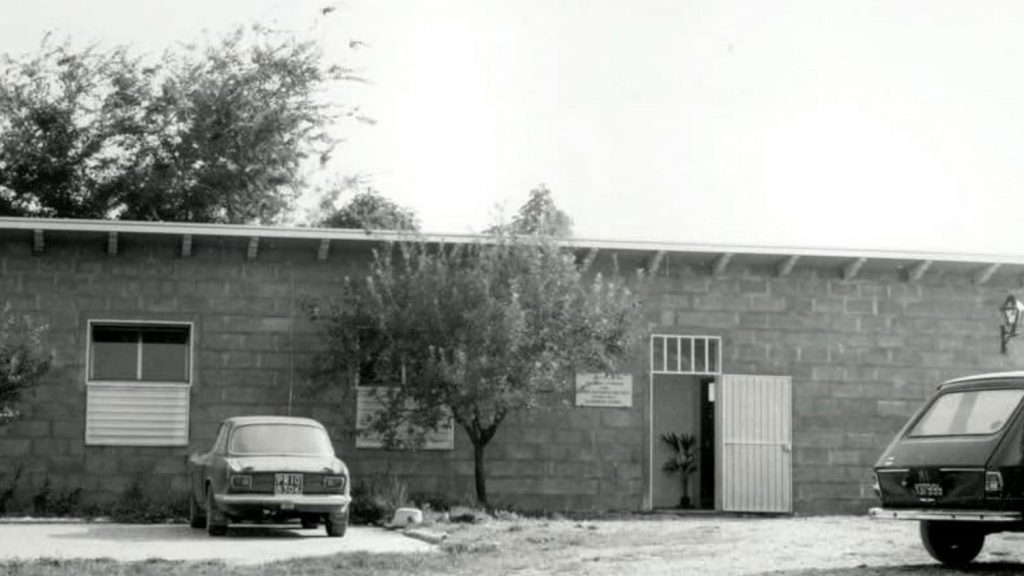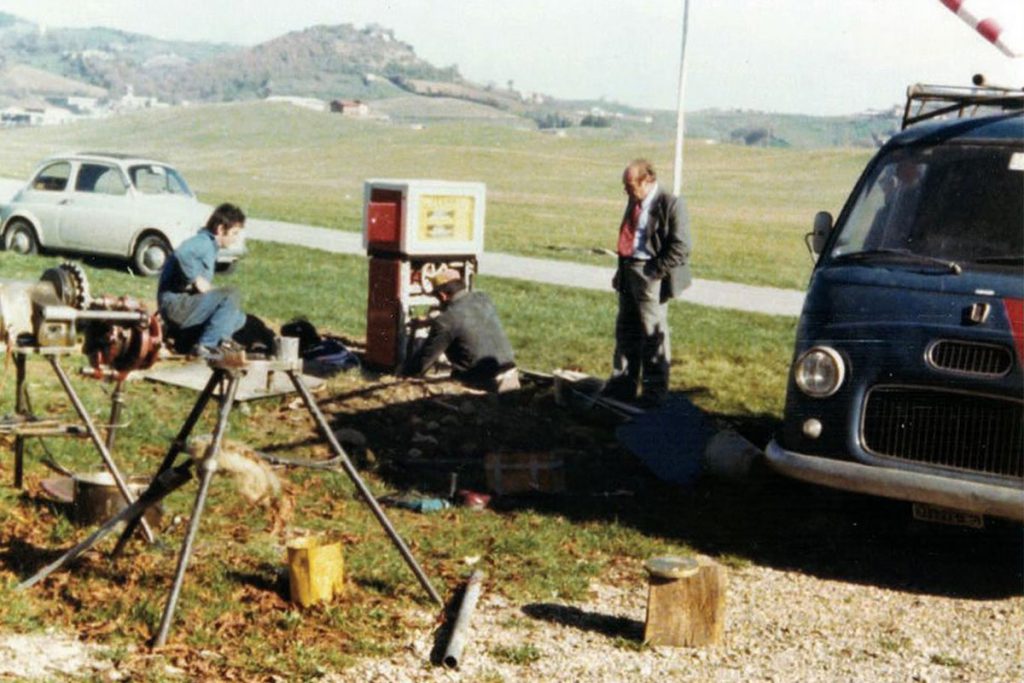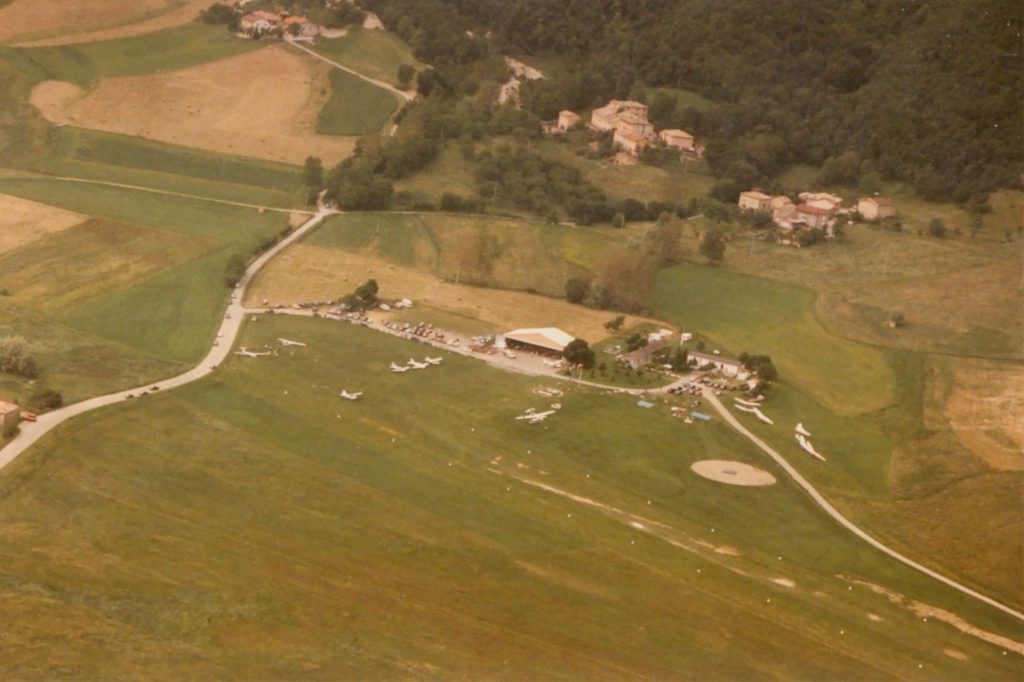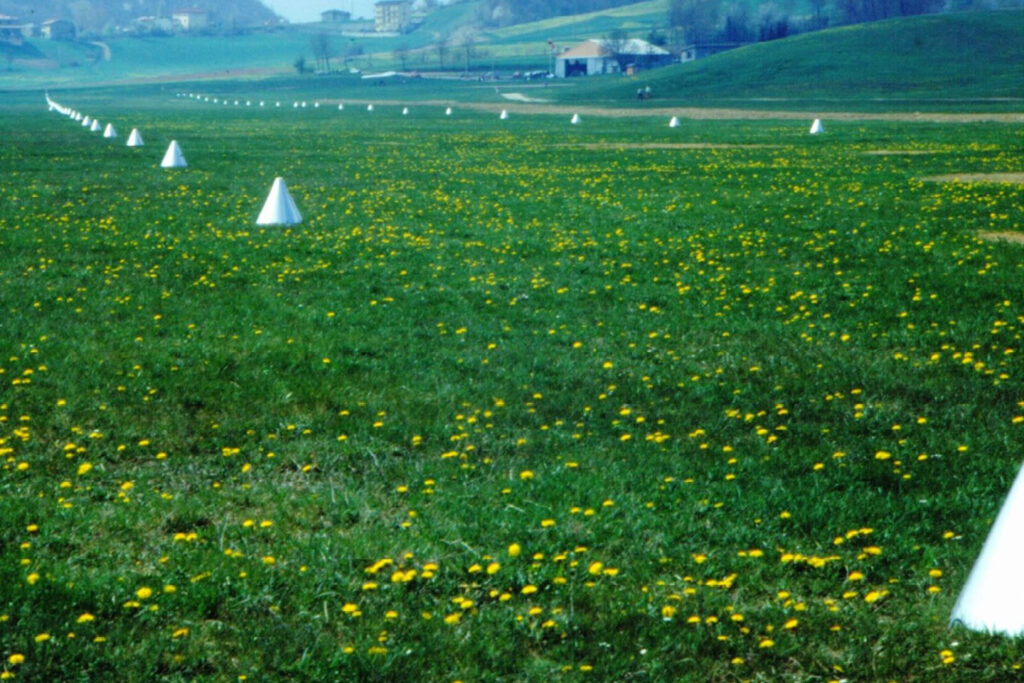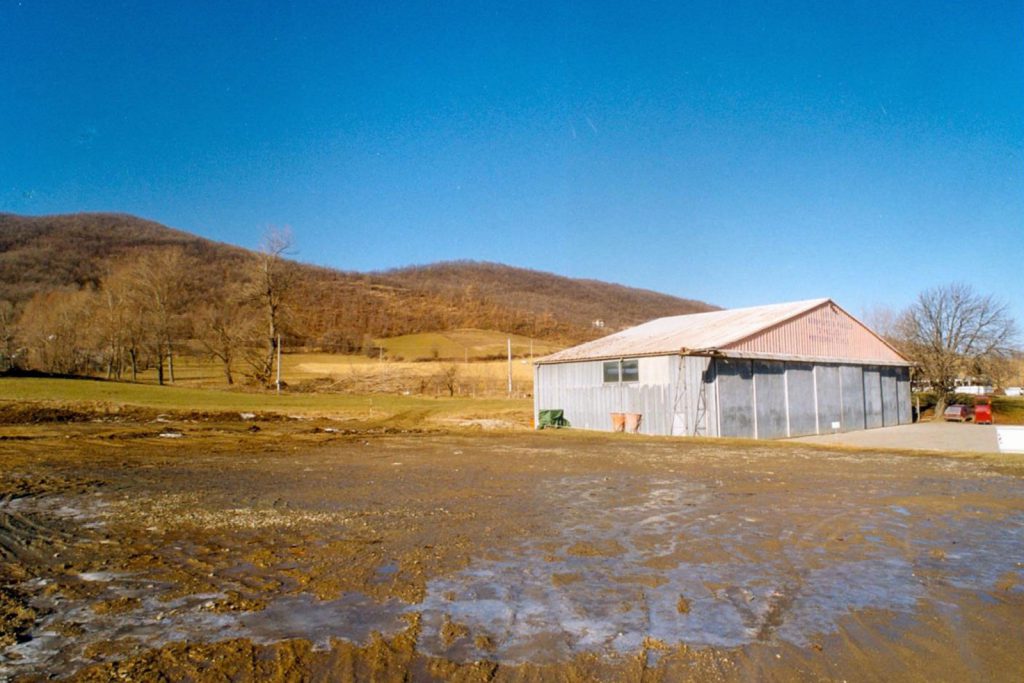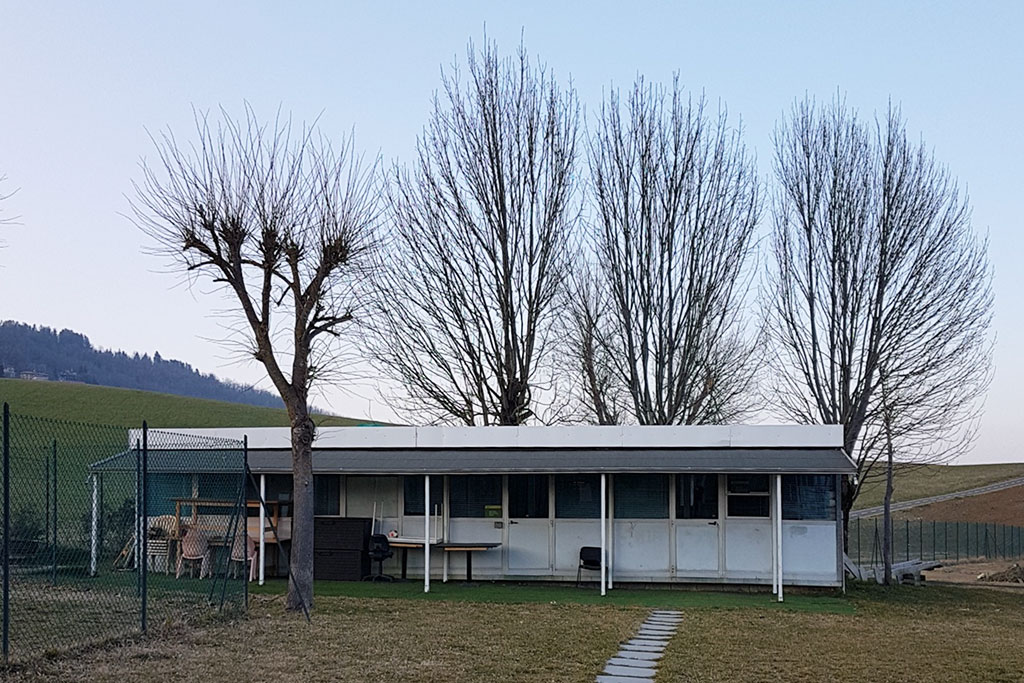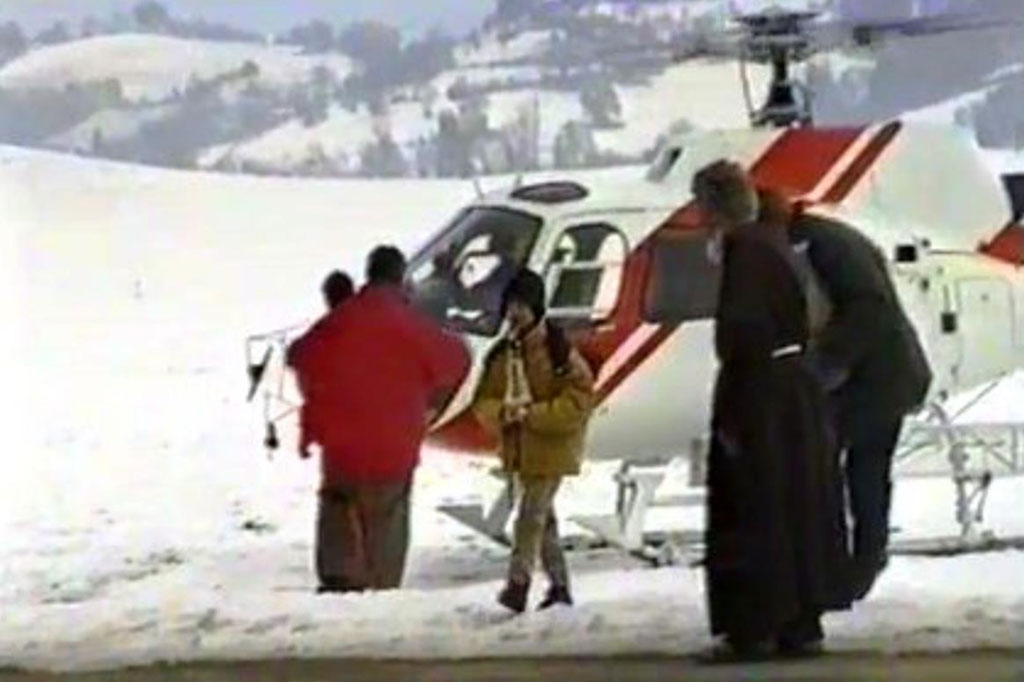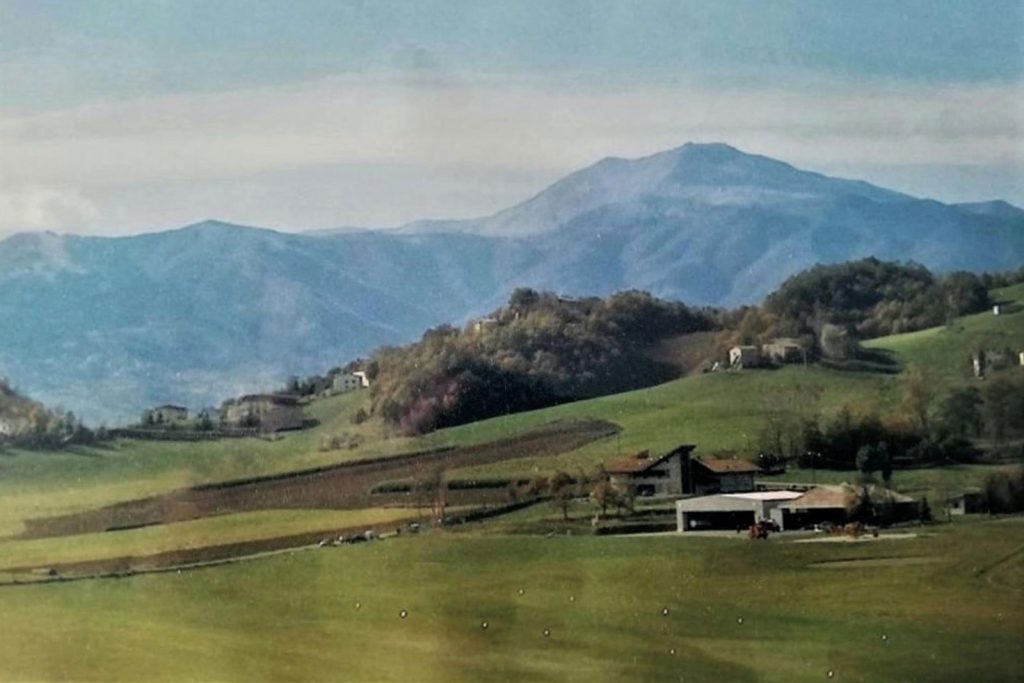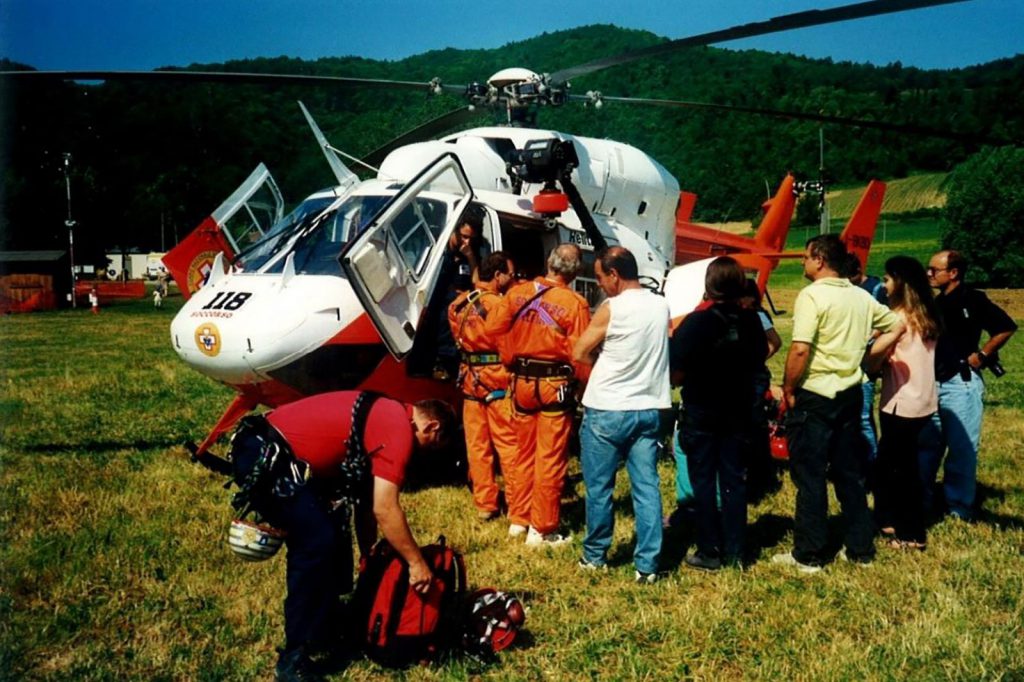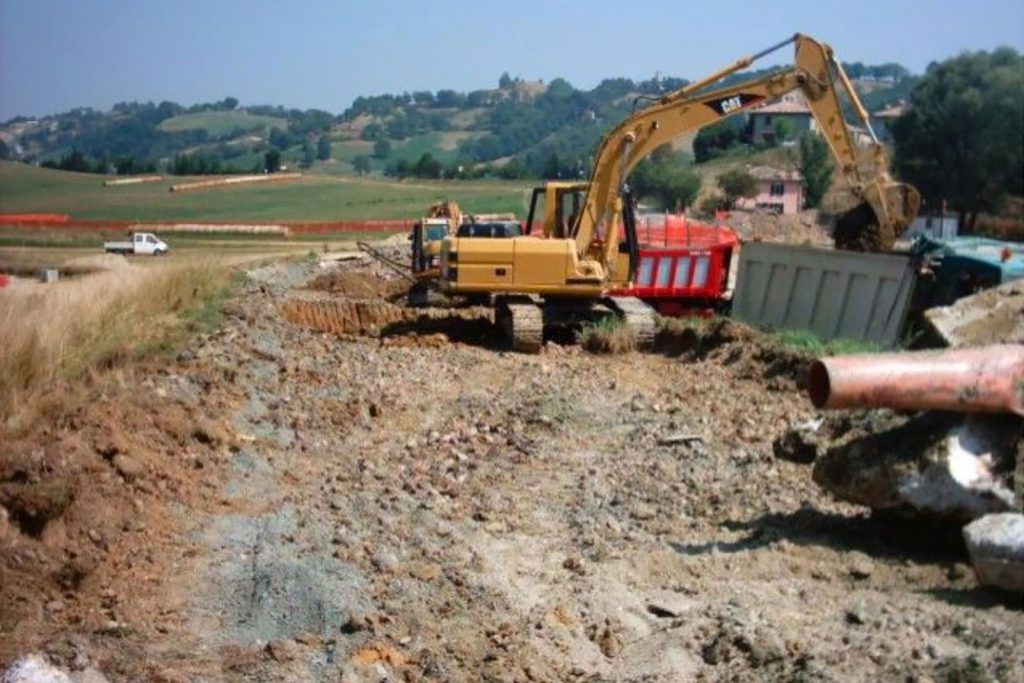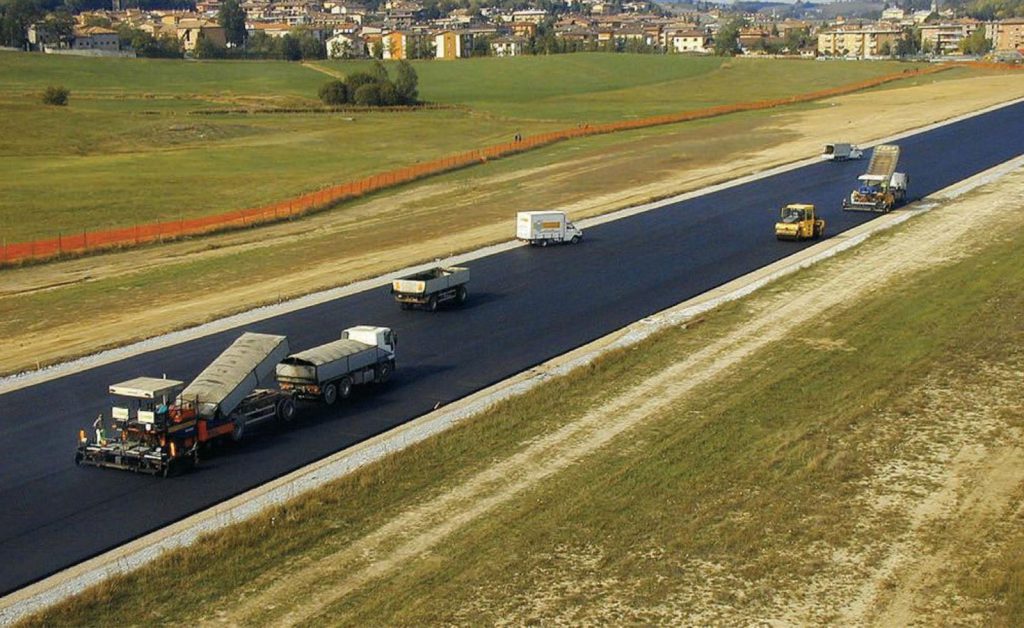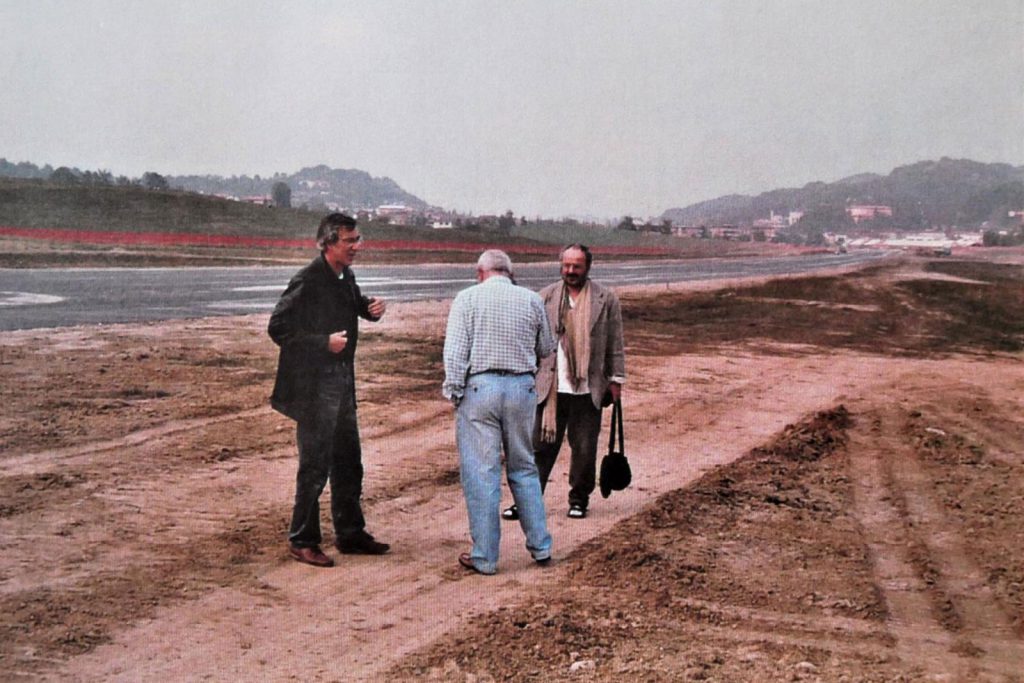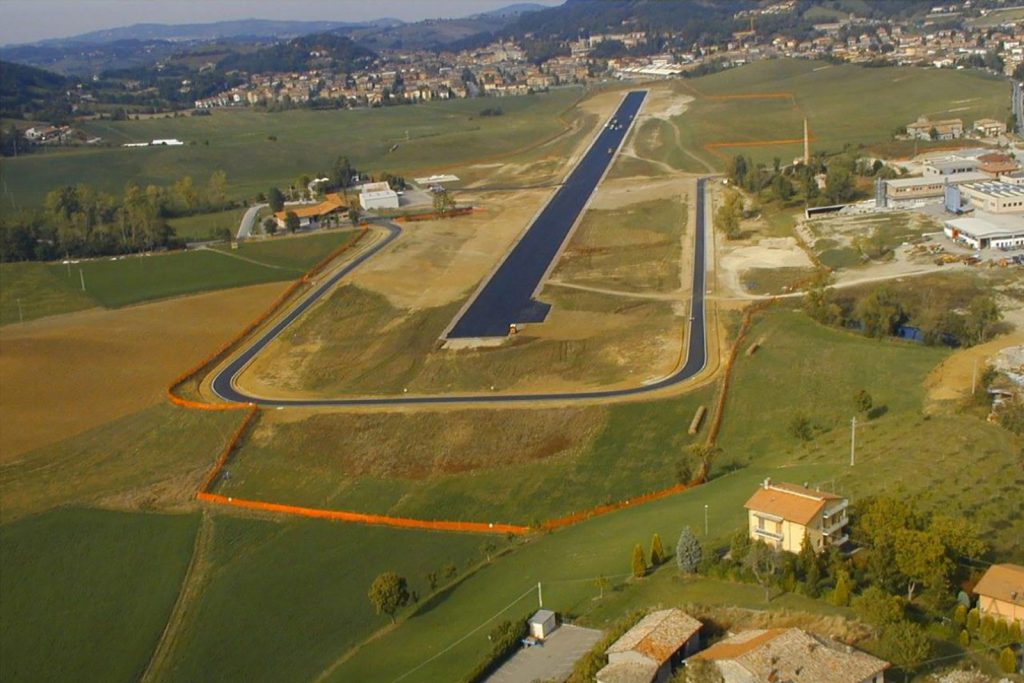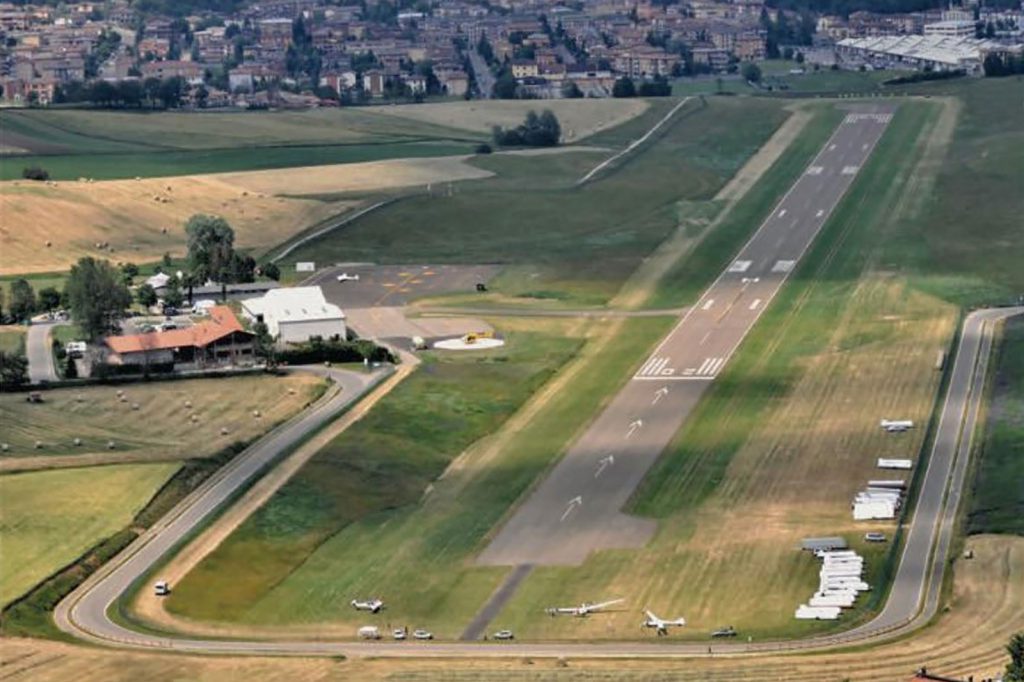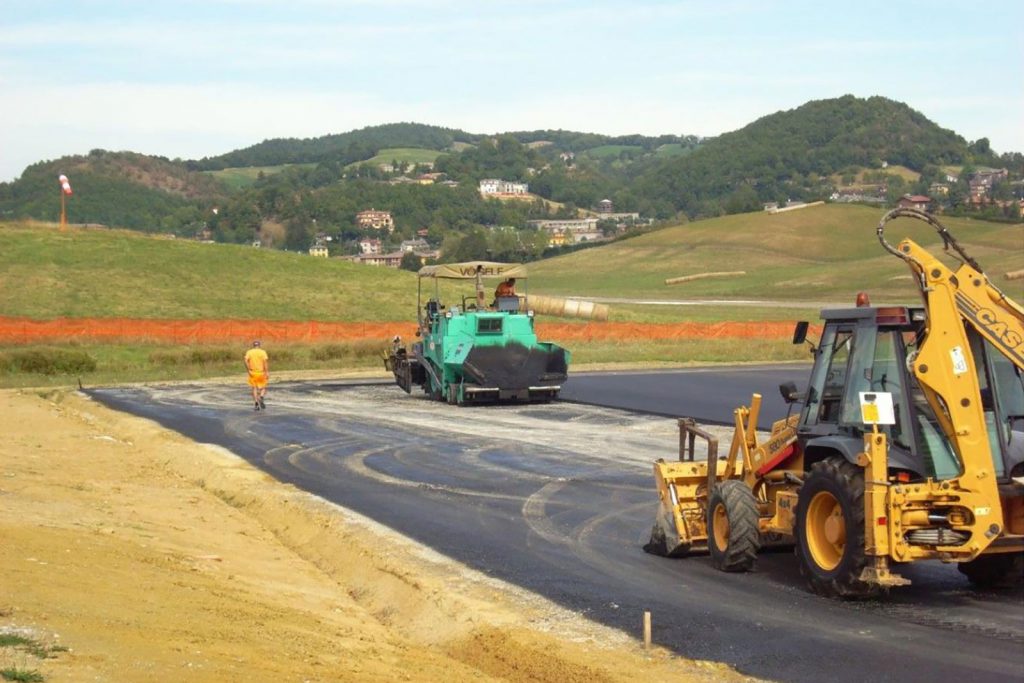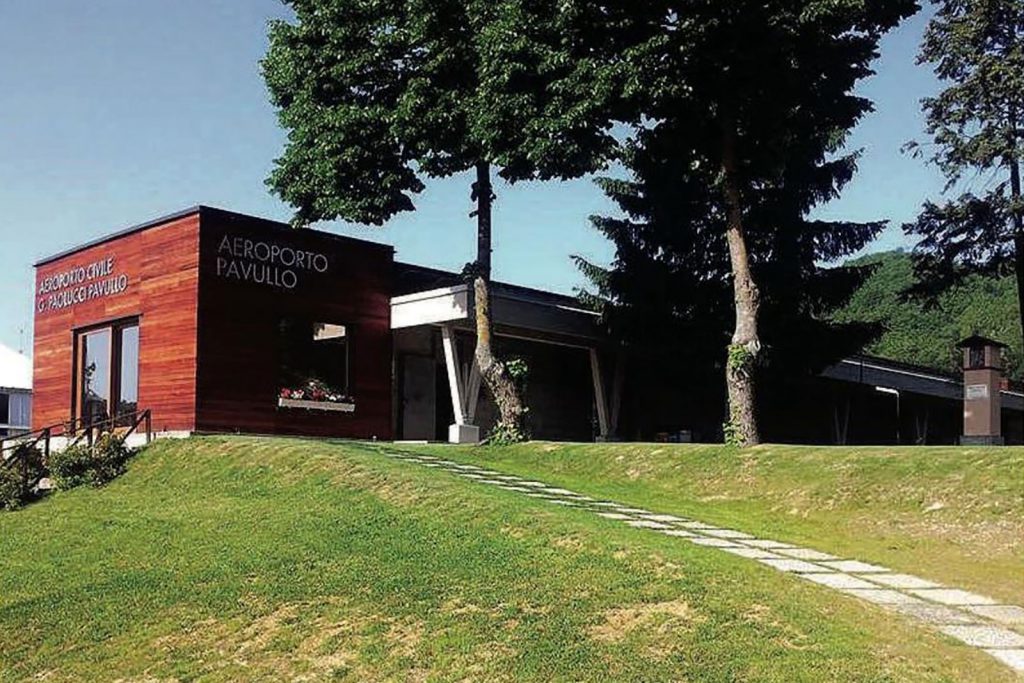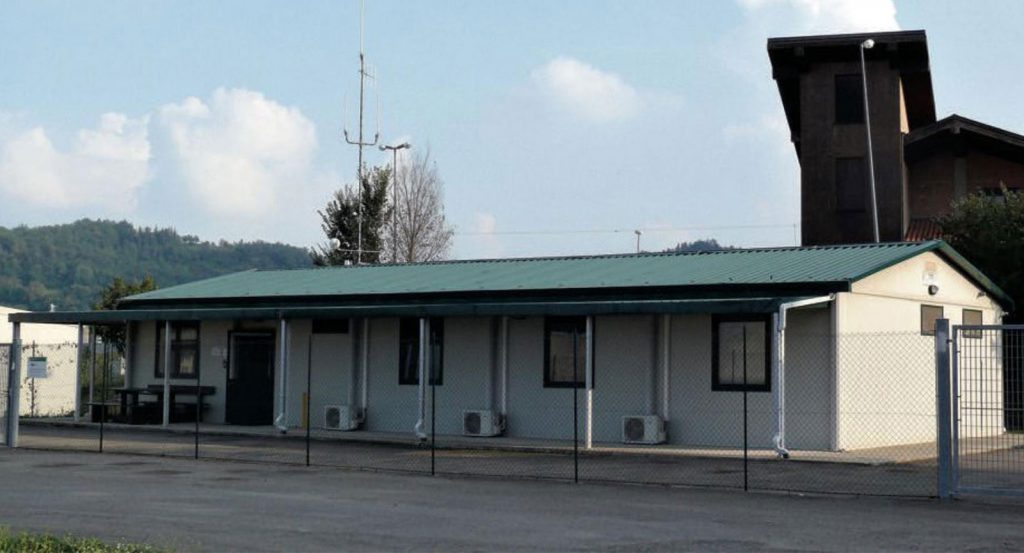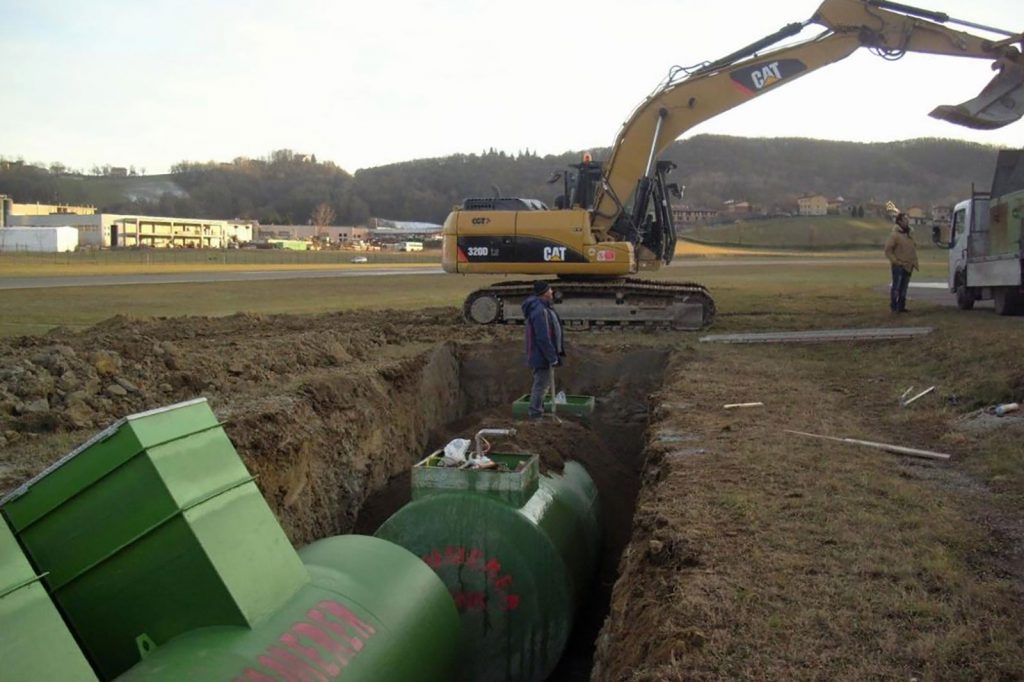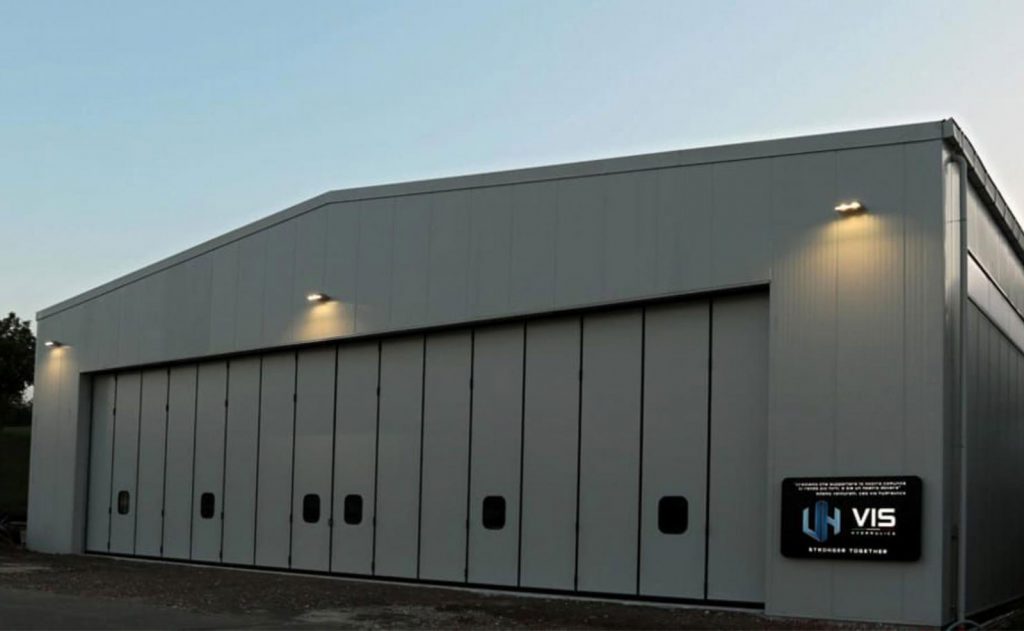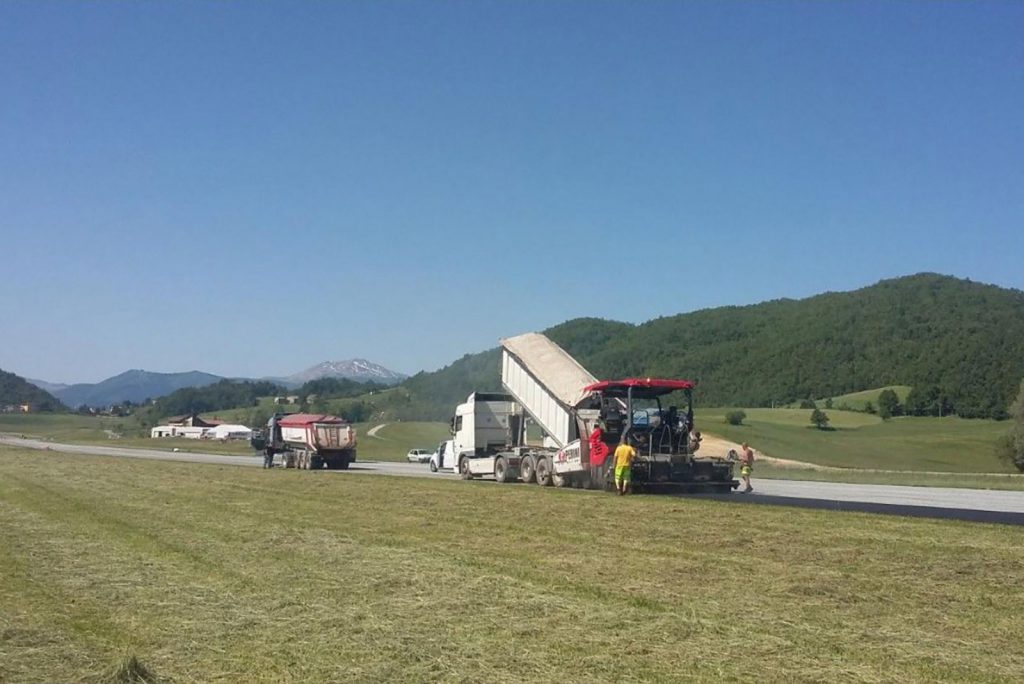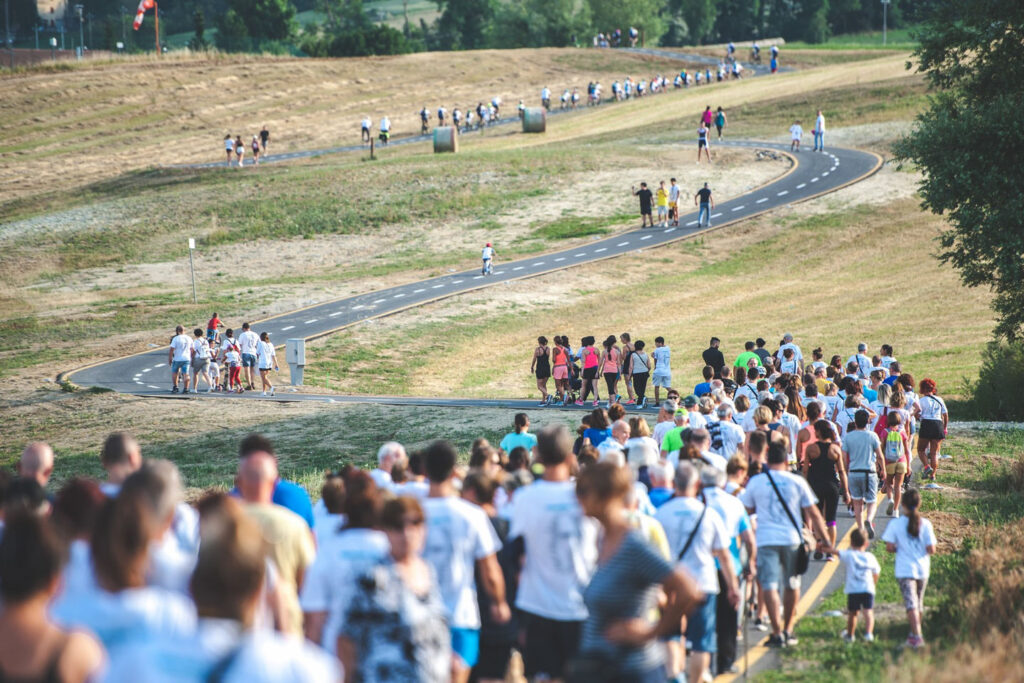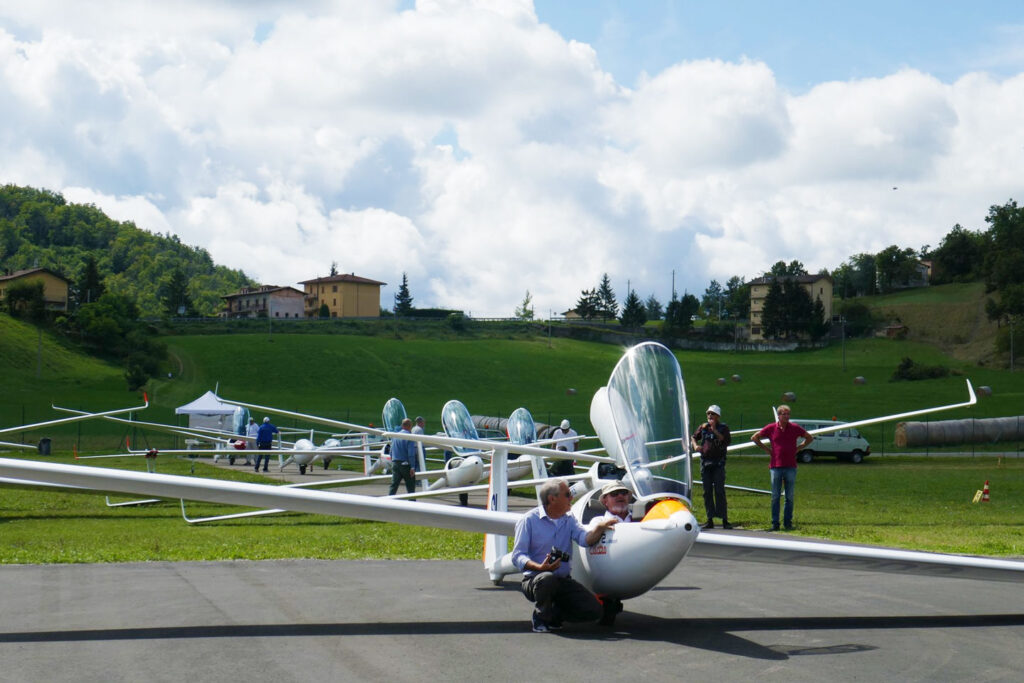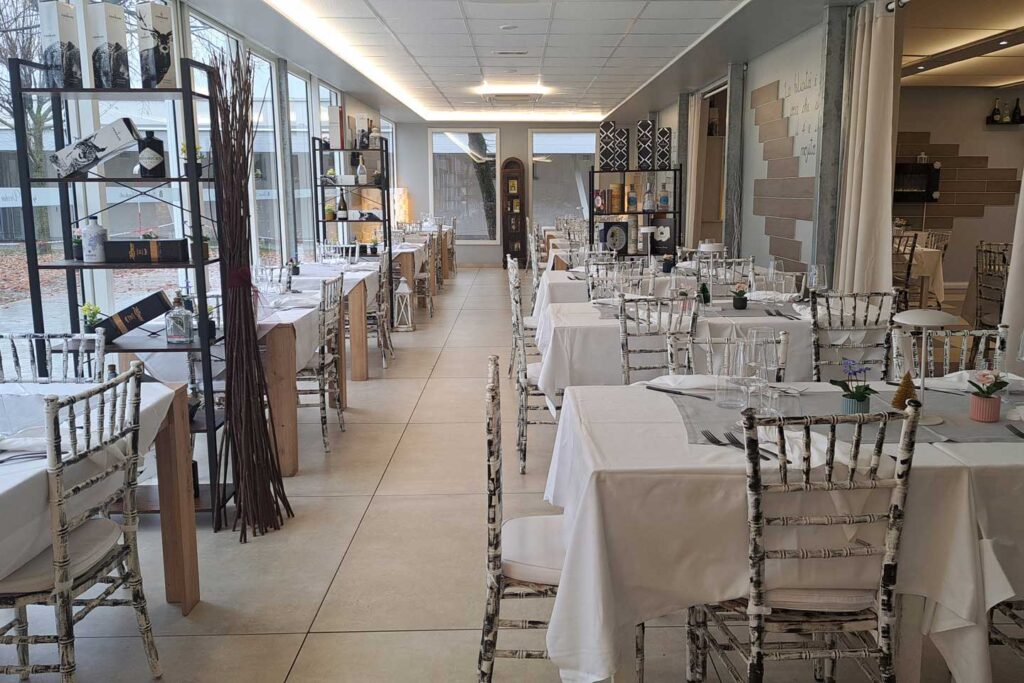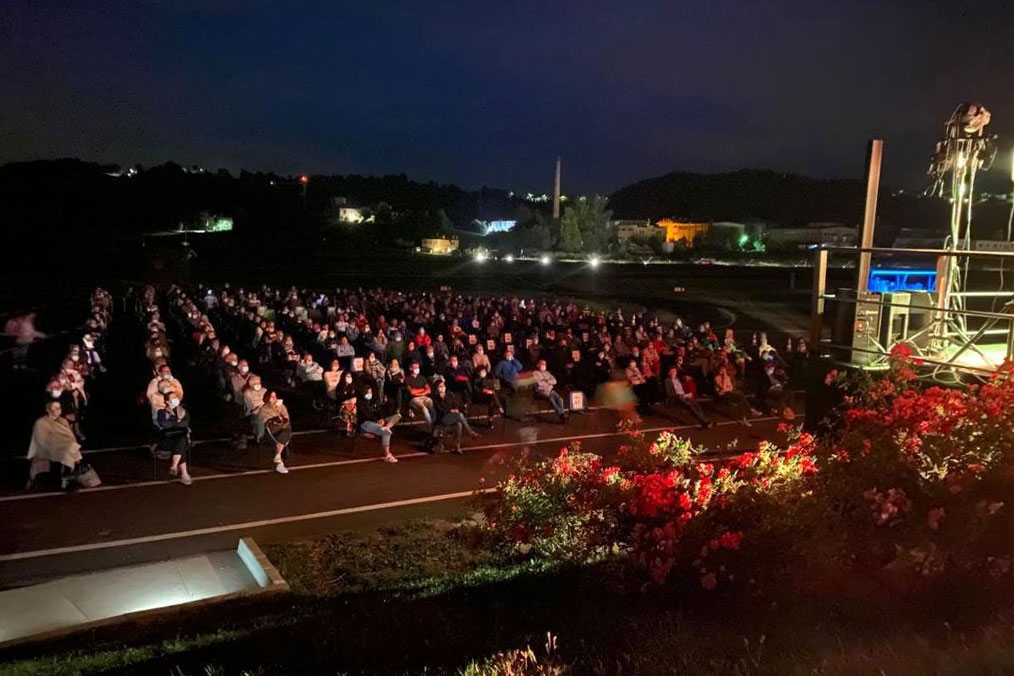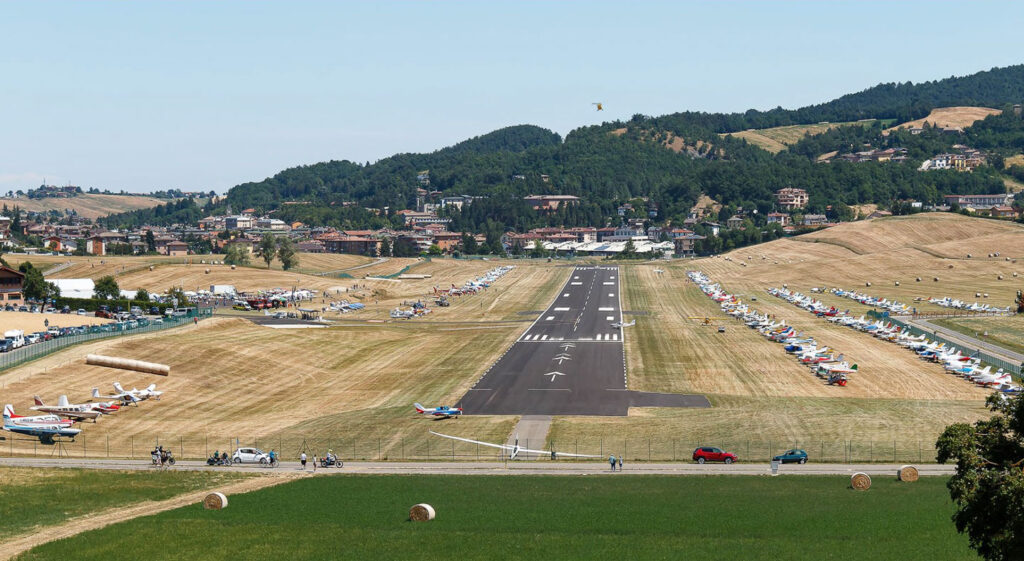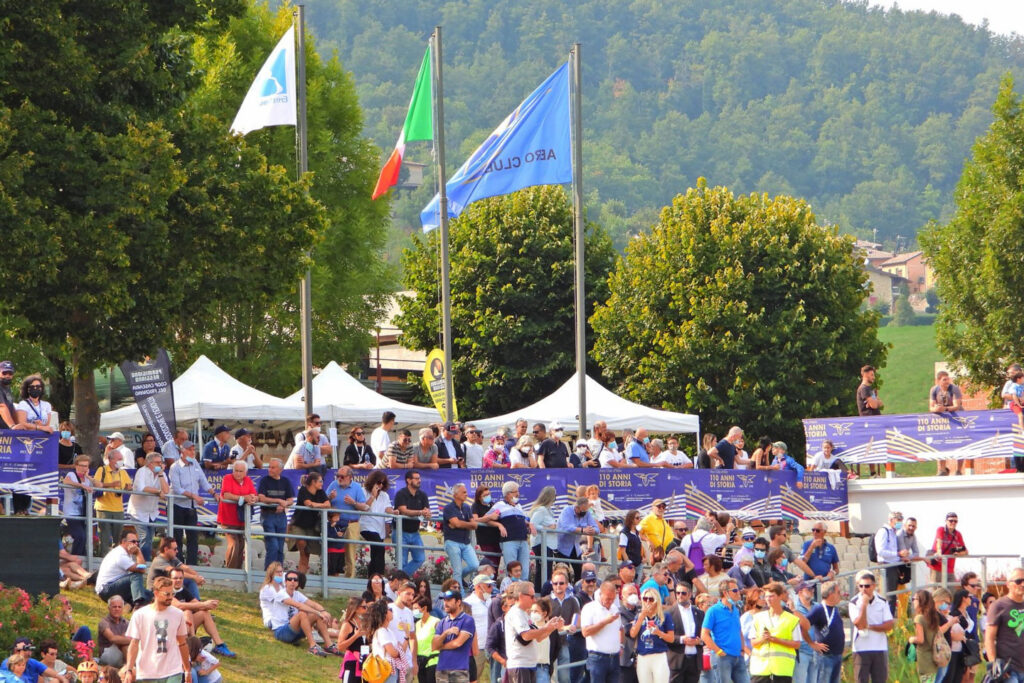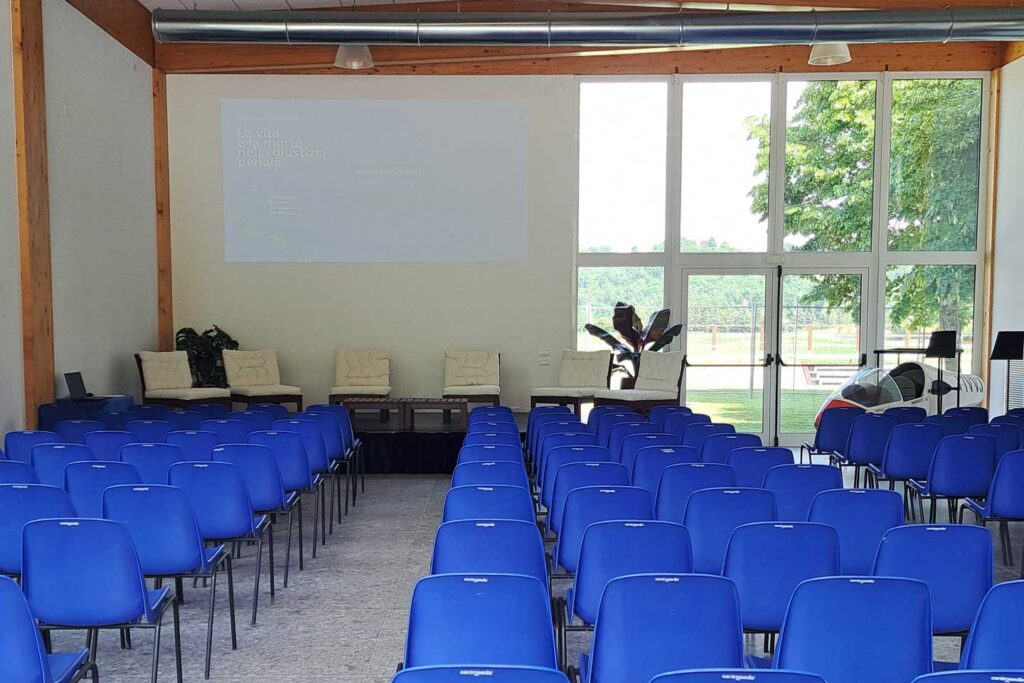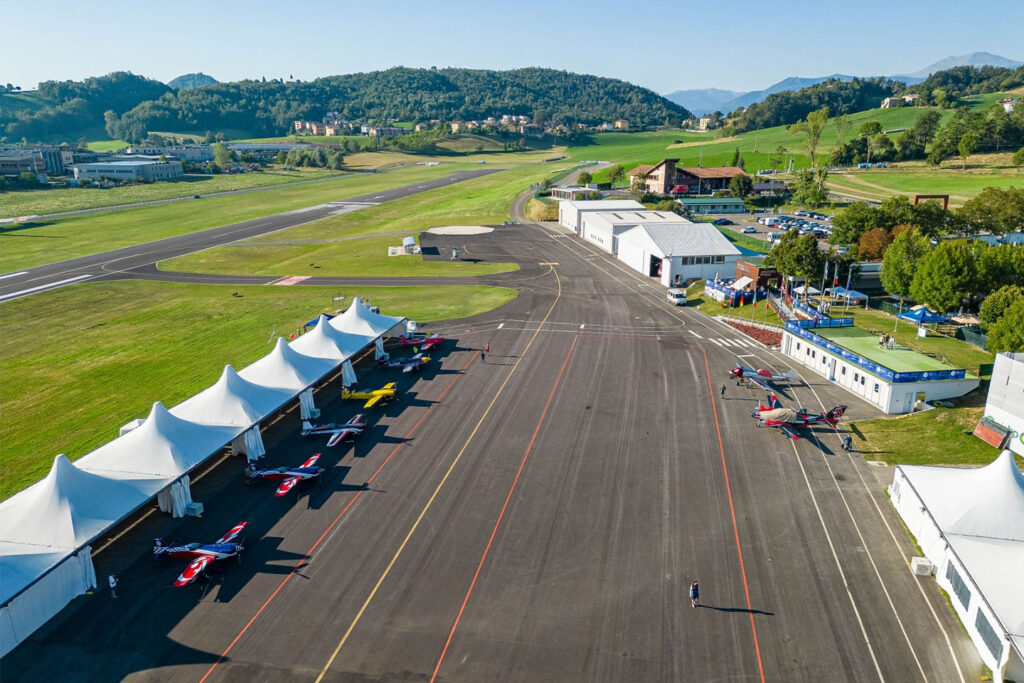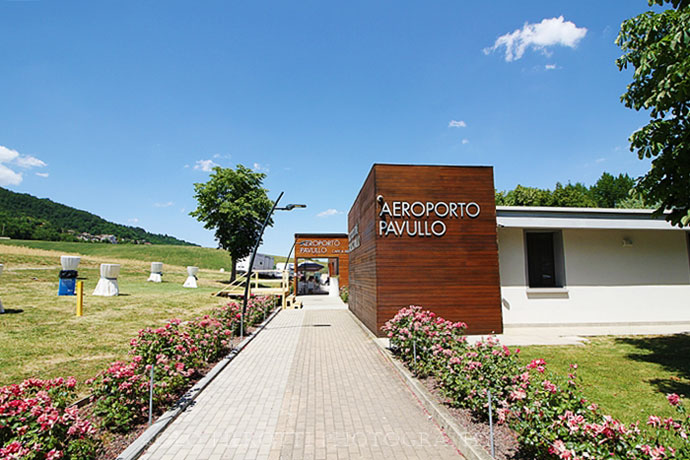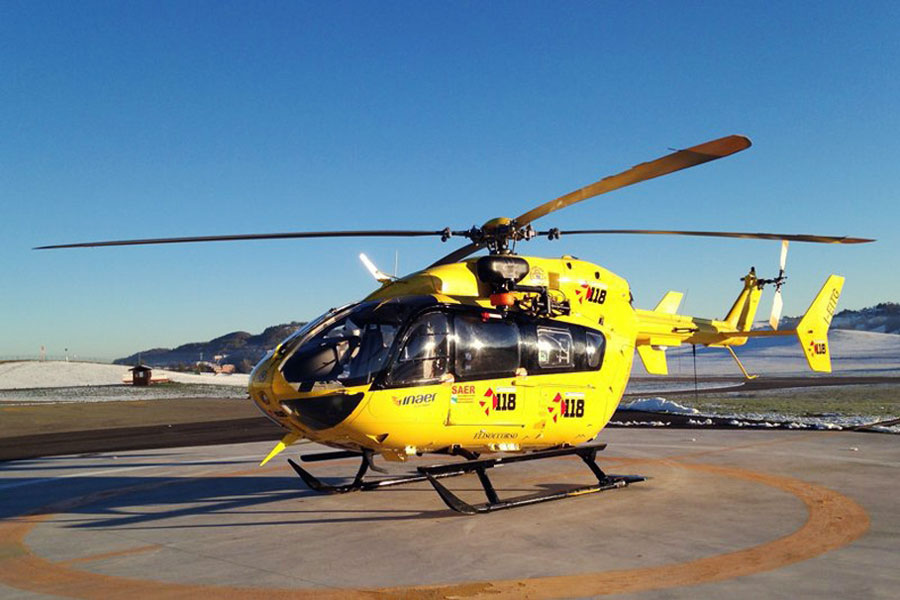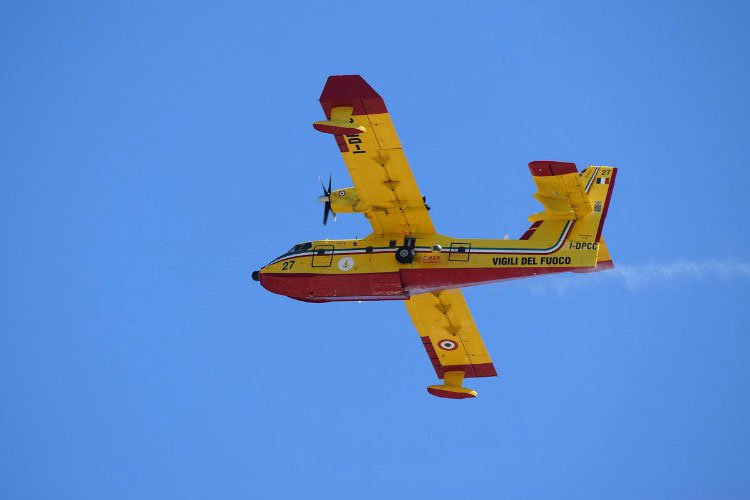1922
The Airport is located in the territory south of the main city of the Frignano territory, called "The Plains of Pavullo." In the early postwar period, due to its particular morphology and favorable meteorological conditions, this area attracted the interest of Luigi Teichfuss and Umberto Nannini, enthusiasts of aeronautics and in particular of Gliding.
1923
It was established by the will of the Podestà of Pavullo Comm. Lawyer Vincenzo Ghibellini and Provincial Federal Secretary Comm. Guido Corni, who proved to be true visionaries with this choice at the time. Its function and identity was initially as a makeshift field for airliners in transit on the Rome-Milan route, but the project was far more ambitious and soon began to find fruition.
1927
The first course of the "Gliding Flight School," a preparatory and compulsory activity for entering higher flight schools, the antechamber to the Military Academy, is held, and 27 students are patented.
1928
The then Undersecretary of the Air Force Italo Balbo personally examined the organizational, training and promotional aspects, appreciating the area's characteristics, which were ideal for flying, and the high quality of educational activities.
1928
Aerial view of the hangar and tents: clearly visible areas of work done on the ground, still without grassing.
1931
Following Royal Decree no. 1610, on July 2 the makeshift field assumed the status of Regio Aeroporto, named after Giulio Paolucci, a young aviator from Romagna who tragically fell in 1928 on the meadows of Pavullo.
1936
The pre-Olympics in Berlin were accessed for the first time by aeronautical specialties with gliding, and Italy participated with its center of excellence: Pavullo; the glider Orione, designed and manufactured by Luigi Teichfuss in Pavullo and piloted by then Airport Commander Capt. Umberto Nannini won the gold medal.
1939
In the foreground is the Teichfuss Sparrowhawk, the first glider designed with the distinctive "seagull wings," designed and built in Pavullo.
1944
On August 5, at 4 p.m., it was all over: the Germans undermined the airport and in a single explosion razed every building and destroyed the runway.
1953
In the early 1950s the absence of hangars and barracks, present until 1944, is noted, replaced by three Morteo sheds surrounded by haystacks.
1960
World War II and the immediate post-war period marked a time of decline for the Paolucci activities, which did not recover until the 1960s, with the rediscovery of the area by an active group of paratroopers and a growing gliding movement.
1965
These two activities, parachuting mainly, which saw its main creators in Ariodante Mazzacurati, Marshal Roberto Marzoli, and Colonel Giuseppe Romani, were the link that allowed the airport structure to be brought from the postwar period to the modern era and to hand over the baton to a renewed Aero Club.
1977
The new housing for paratroopers and offices of the Parachute School, still located in the old shed.
1987
It began the current course of Aero Club Pavullo, then called Club Aereo, which saw the association active in the strenuous defense against the building aggression of the airport and the identity reappropriation of its operational and legal role: the airport was not recognized by the Municipal Administration. A real legal and political battle that has been an example for many Italian airports and other local governments. Alongside Aero Club Pavullo has never lacked the presence, support and cooperation of Civilavia, now ENAC.
1993
The first headquarters of the Air Club is built by salvaging a prefabricated structure decommissioned from a local ski resort.
1998
ENAC entrusts Pavullo State Civil Airport under operational management to Aero Club Pavullo. Also in that year ENAC Bologna decided to hold the commemoration ceremony of Our Lady of Loreto right in Pavullo, which was transported by a helicopter of the Fire Department. To date, the statue of Our Lady of Loreto represents the only element that has remained unchanged throughout the various works to expand the airport area.
2000
December 1st: opening of the Emilia Romagna Region's 4th Regional Helicopter Base at the airport, the first and only one with a winch for HHO operations.
2001
Acquisition of land necessary for the upgrading of the airport and execution of development works. The old, historic access road to the Airport is demolished.
2005
Completion of asphalt work and, on August 5, testing and inauguration of the track, siding and small plaza.
2008
A number of works are completed in September, most notably the final fencing of operational areas and the external road system.
2011
Expansion works: helicopter pad relocation, new access road, new car parking area, new aircraft parking area, new Helicopter Base location.
2019
In June, the runway and aprons were repaved, including with consolidation to contain cracks and with implementation of lighted visual aid systems for helicopter night flight. Part of the work was done at night by the light of tower-lights, with trucks loaded with asphalt arriving without the hindrance of traffic: this was to ensure higher temperature of the material and, consequently, higher quality of the work done.
2019
Thanks to an agreement signed between ENAC, Unione dei Comuni del Frignano and Aero Club Pavullo, the construction of a paved, lighted and guarded airport perimeter road that can be used at all times and in all weather conditions is completed. This is a unique work to serve aviation and the entire community.
2019
Major international-style events hosted at the Airport begin, with the World Gliding Class 13.5 mt Championship and, for the first time ever, the 1st E-Glide Championship dedicated to electric gliders.
2020
Beginning of the evening concerts at the Airport, gaining much approval from the local community and beyond.
2021
VFR & Fun. The fair, which began as a simple gathering, is the only event in Europe for the entire aviation industry, and on this occasion i record more than 1,000 planes landed at the airport in 3 days.
2021
Celebrations for 110 years of Aero Club of Italy. For the first time in history, the celebration is leaving Rome and being held at an Airport.
2022
Construction of the new convention center at the Airport, available to the entire Pavullo community and beyond.
Books
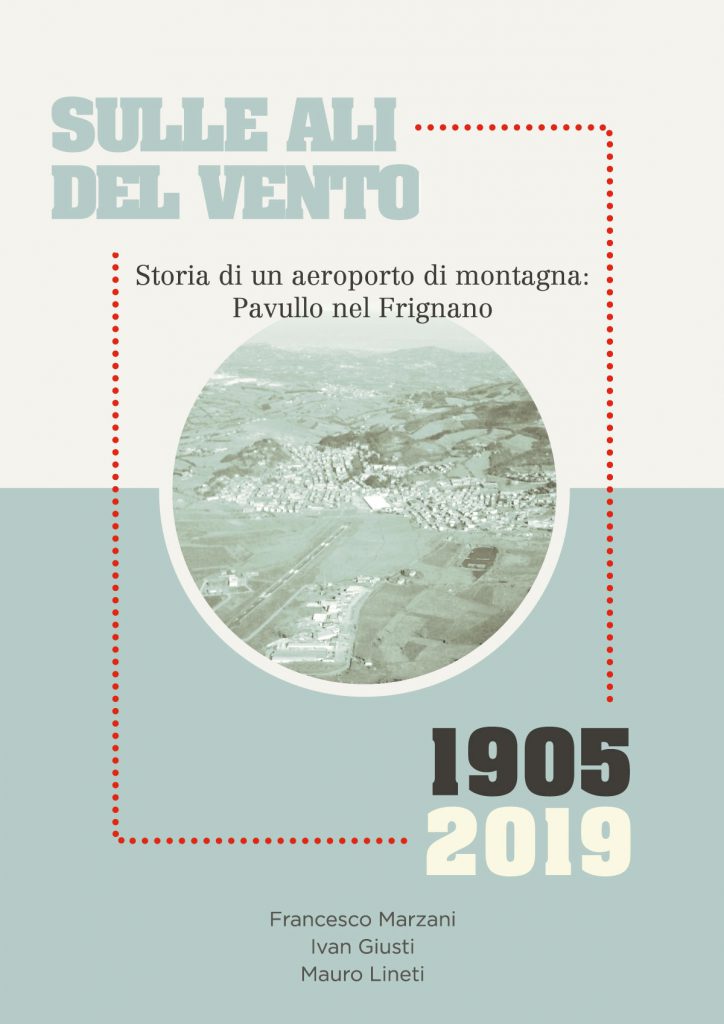
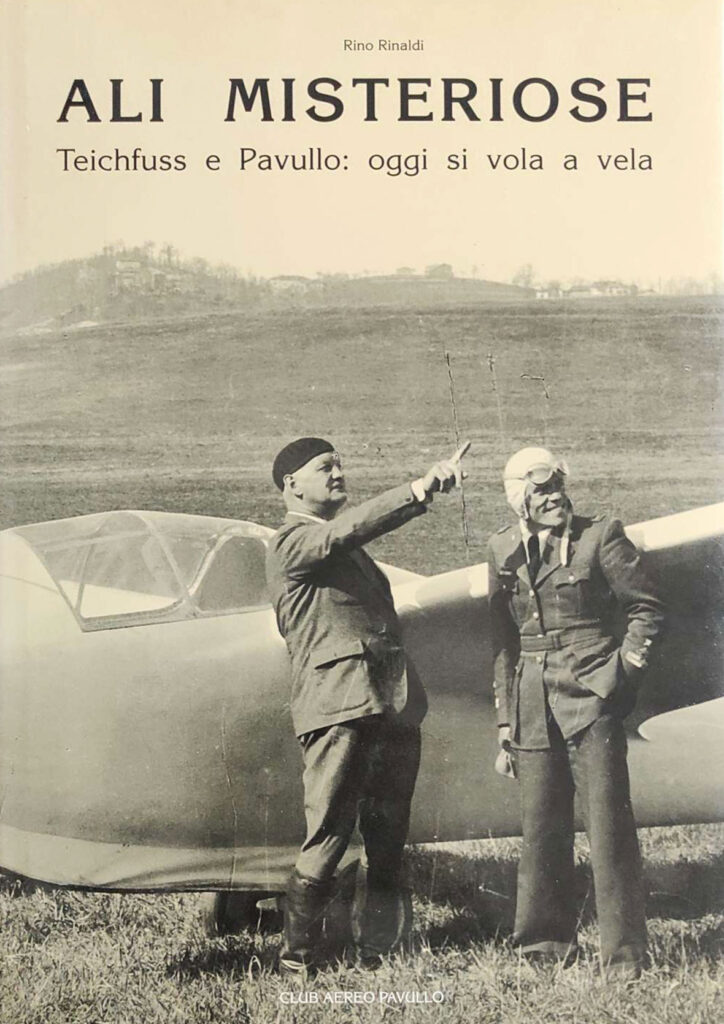
SULLE ALI DEL VENTO – 2019
Available collector’s boxed set, in 3 volumes, on the complete history of the Airport.
ALI MISTERIOSE – TEICHFUSS E PAVULLO: OGGI SI VOLA A VELA – 1994
For all information contact the office.
